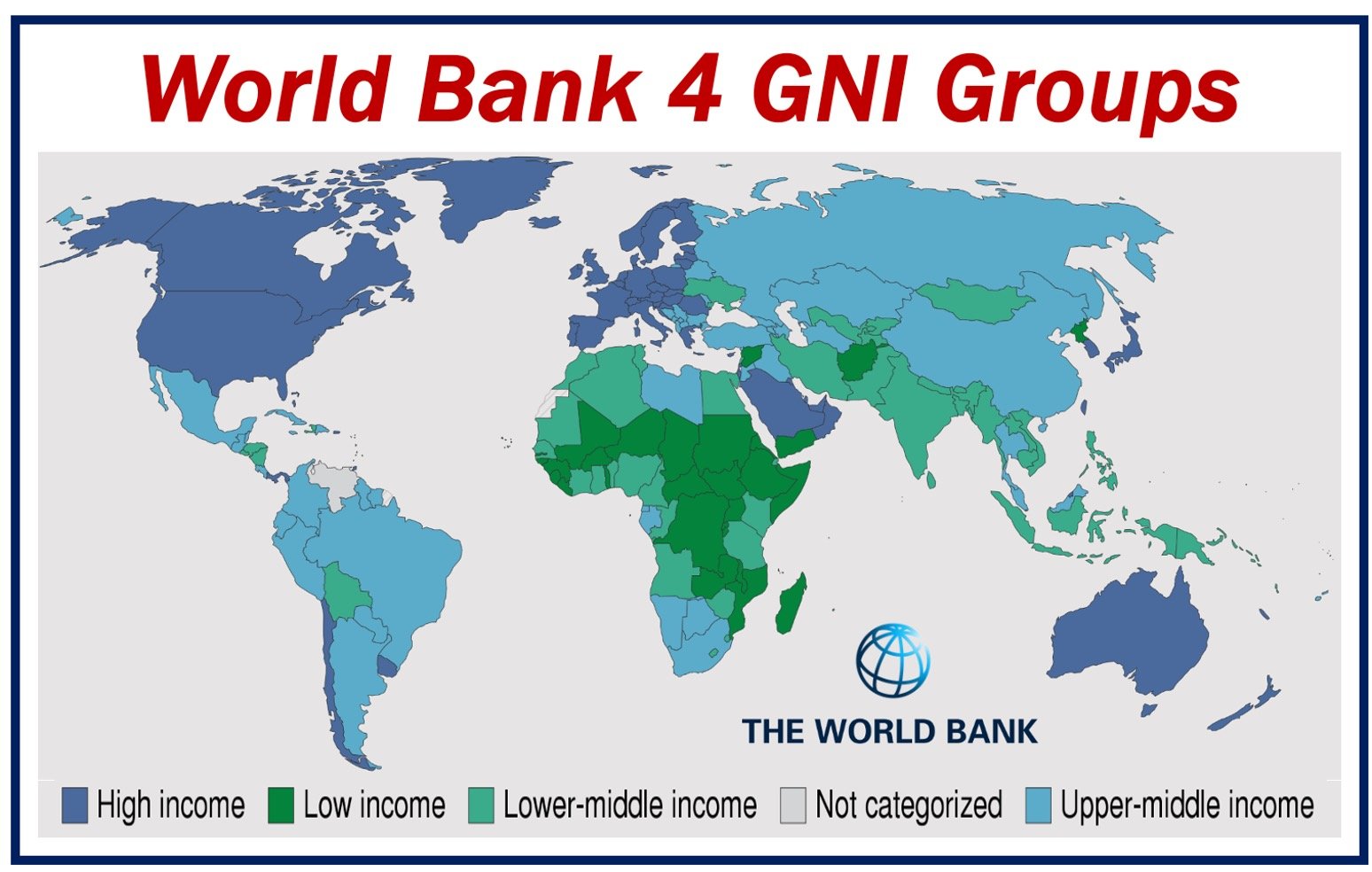Gross National Income (GNI) is an important economic indicator. It measures the total income that a country’s residents and businesses earn, including any earnings that come from abroad.
In simple terms, gross national income tallies up all the earnings of a country’s inhabitants and its businesses, adjusting for income received from or sent to other countries.
According to the OECD, Gross National Income (GNI) is calculated by taking a country’s Gross Domestic Product (GDP) and adding the net income it receives from abroad (like wages and property income) while also factoring in net taxes and subtracting production subsidies.
GNI and GNP
Gross National Income was once known as Gross National Product (GNP). GNP was largely replaced by GNI by the World Bank, the International Monetary Fund, and some other organizations after a recommendation by the UN’s System of National Accounts (SNA) in 1993.
It was not long before the rest of the world followed suit. By the year 2,000, GNI had mostly replaced GNP in international economic discourse.
GNI is GDP plus more
GNI includes the domestic production of goods and services (similar to gross domestic product or GDP) plus net income received from other countries.
This net income from abroad includes business profits and wages from abroad, plus property income from overseas investments, minus the same types of incomes sent abroad by foreign residents and entities located in the country.
Gross national income, therefore, provides a broader picture of a nation’s economic performance than GDP because it includes international income flows.

Calculating gross national income
If you want to calculate GNI, you have to add the value GDP, plus income that its resident people and businesses earn from overseas, minus income earned by foreign residents and businesses that are sent abroad.
Here is a summary of the formula:
GNI = GDP + (Primary income from foreign sources – Primary income paid to foreign entities)
Why is gross national income important?
Economists and policymakers monitor GNI to gauge the economic well-being of their country’s citizens.
It helps us understand the extent to which our country’s citizens benefit from its economic activities, including activities that take place abroad.
Moreover, GNI per capita is a common measure we use to compare the average income of the citizens of different countries to assess their living standards. If you divide a country’s GNI by its population, you get GNI per capita.
Summary
Gross national income offers a comprehensive overview of a country’s economic health, including its people’s and business’s total domestic and foreign income.
GNI is crucial for anybody who wants to get a full picture of a country’s economic status and its residents’ prosperity.
